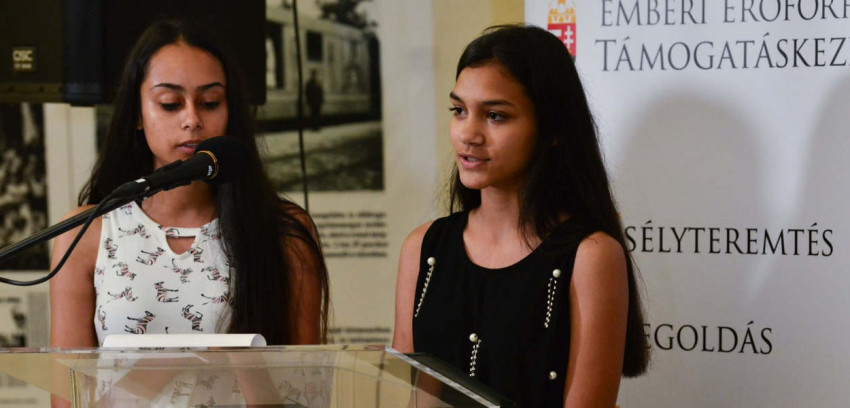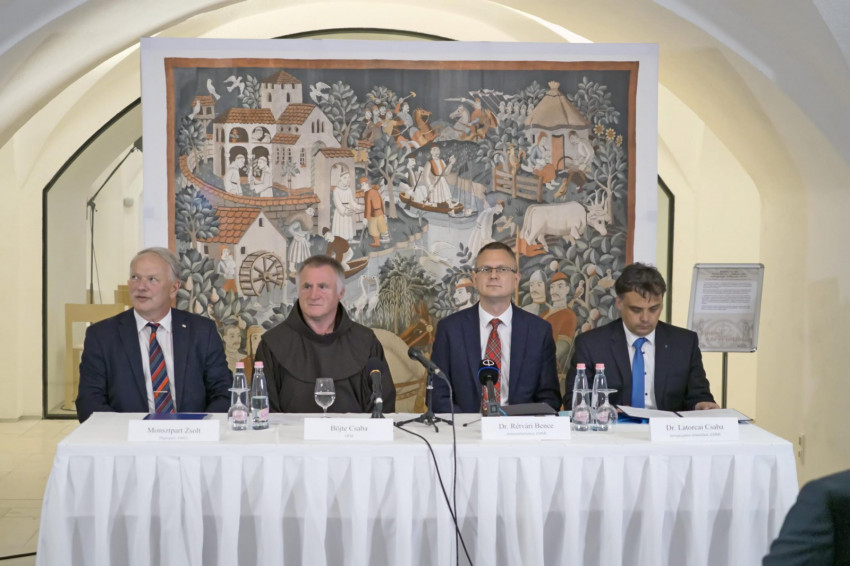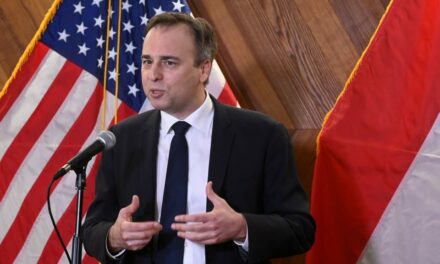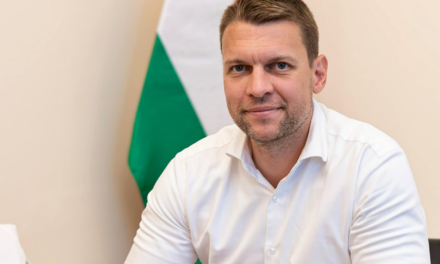A three-year program entitled Roma - Without Borders took place in the Carpathian Basin in order to catch up with the cumulatively disadvantaged Roma. In the past ten years, there has not been such a comprehensive research on Roma as was carried out in the spring of the program - the results of this were also presented at the conference held on June 23-24 in the Szeged Cathedral Visitor Center.
Under the leadership of the Hungarian Maltese Charity Association, and on behalf of the Human Resources Support Manager (EMET), Kutatópont Kft. investigated the identity, social and labor market situation of Roma families living in Hungarian-inhabited areas - Hungary, Transylvania and the Highlands - on a sample of 4,500 people.
Bence Rétvári, Deputy Minister of the Ministry of Human Resources (EMMI), Csaba Latorcai, State Secretary for Public Administration of EMMI, Lívia Járóka, Vice President of the European Parliament, and Zsolt Monszpart, Director General of EMET, gave greetings at the opening of the conference.
Chief Patron Bence Rétvári said: the aim of the current policy is to provide real help; they give scholarships, for example, to obtain various educational qualifications. "And we don't deal with their problems from offices, but we are present among the Roma, because that's the only way to understand what they need," he added. Zsolt Monszpart emphasized: the government has never spent as much money on reducing the disengagement of the Roma, or on catching up, as it has now.
Rector Gábor Kozma, director general of the Vilmos Gelsey Pedagogical Institute (SZEGEPI) of the Diocese of Szeged-Csanád spoke about the activities of the public education, higher education and child protection institutions of the diocese to help socially disadvantaged groups, primarily the Roma.
The conference was also attended by Csaba Böjte, the founder of the Szent Ferenc Foundation in Déva, who, as he put it, brought two children instead of flowers.
Annamária Alberti recited a poem, and then together with Michi Denisa, they sang the gypsy anthem. The girls have been residents of Csaba Böjte's children's home since they were little. (20 percent of the residents of the children's home network founded by Deva are of Roma origin.)

Photo: István Kuklis/Dálmagyar.hu
Csaba Böjte reported that the "Alliance Day" is held every year on June 4, which means more than Trianon Memorial Day.
"Because we are all the people of the New Testament, and this connects us regardless of skin color," he said.
State Secretary Csaba Latorcai said about the three-year project, realized with HUF 912 million support, that they turned to disadvantaged Roma living in Hungarian-inhabited areas of the Carpathian Basin. He pointed out: the goal is not to help them, but to enable them to get an education and then a job.
Levente Székely, the head of the research , spoke about how the survey revealed that almost half of the Roma in Hungary and Transylvania are satisfied with their lives, despite the fact that many of them live in poverty and in difficult conditions. In the highlands, this ratio was somewhat worse. More than 80 percent of those interviewed claim to be Hungarian native speakers, and the majority identify themselves primarily as Hungarian.
It was also revealed that nearly half of the surveyed businesses have already employed employees of Roma origin, and that they are mostly satisfied with their work. This is also important because the majority of Roma expect the improvement of their personal situation from the labor market and not from subsidies - the head of the research summarized some of the important points of the thousands of pages of working material.
Lívia Járóka, Vice-President of the European Parliament, joined the conference with a video message. As a summary, he said that the purpose of the research was to show the most important things to be done, as well as the areas in which the grant funds of the next period will be most usefully spent.
Source: Hungarian courier
Photo: István Kuklis/Dálmagyar.hu;
Hungarian Courier












